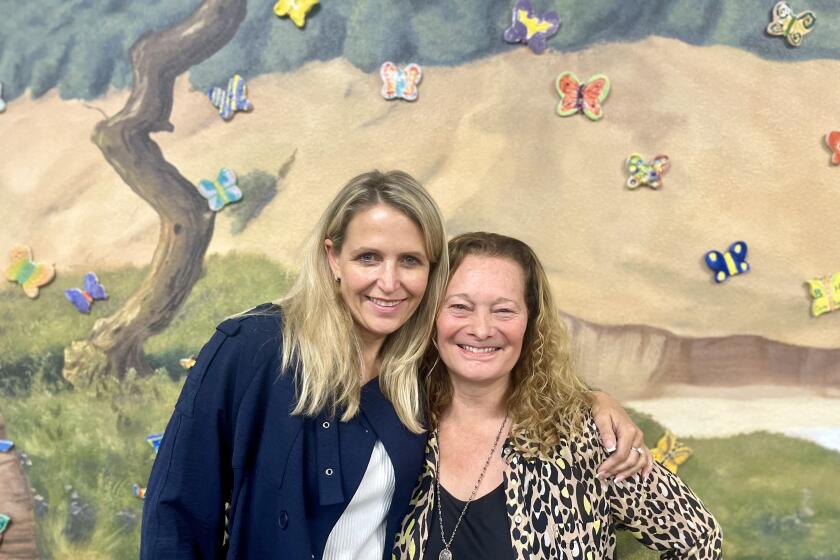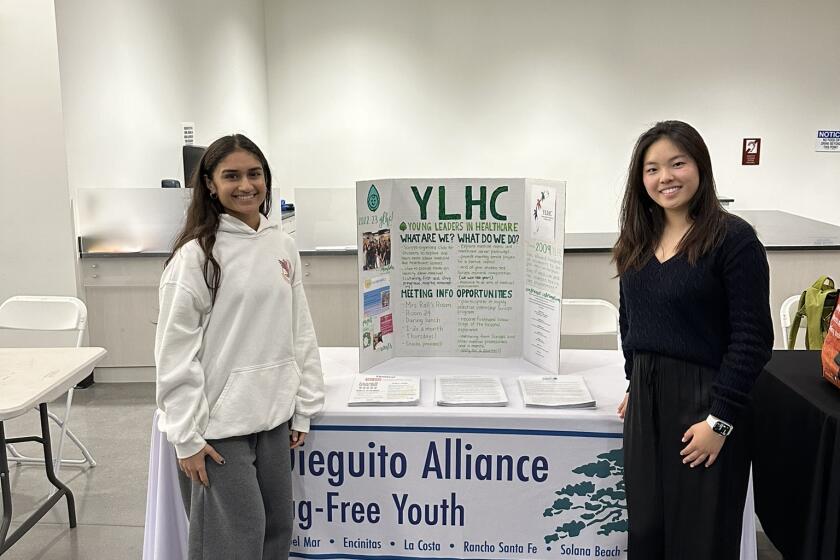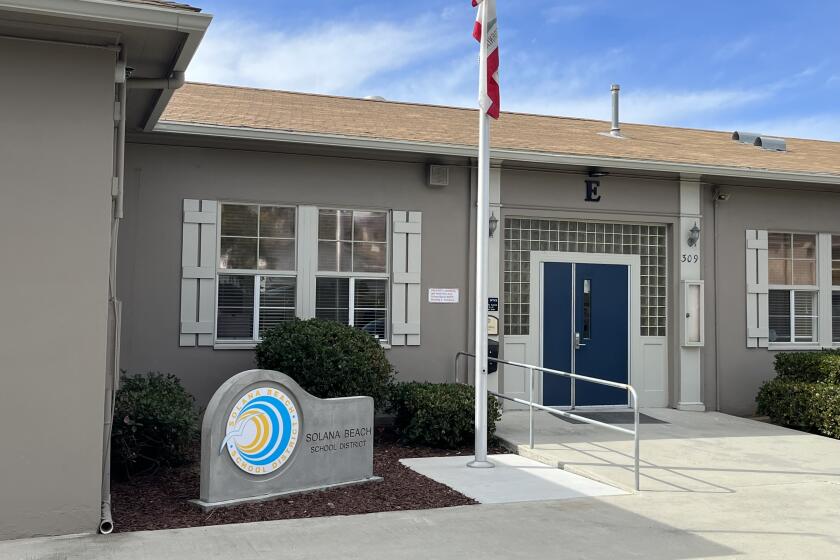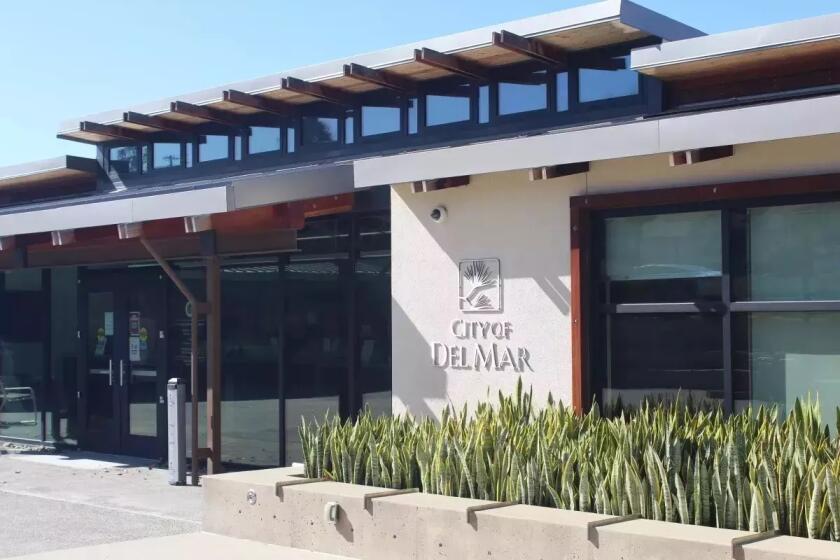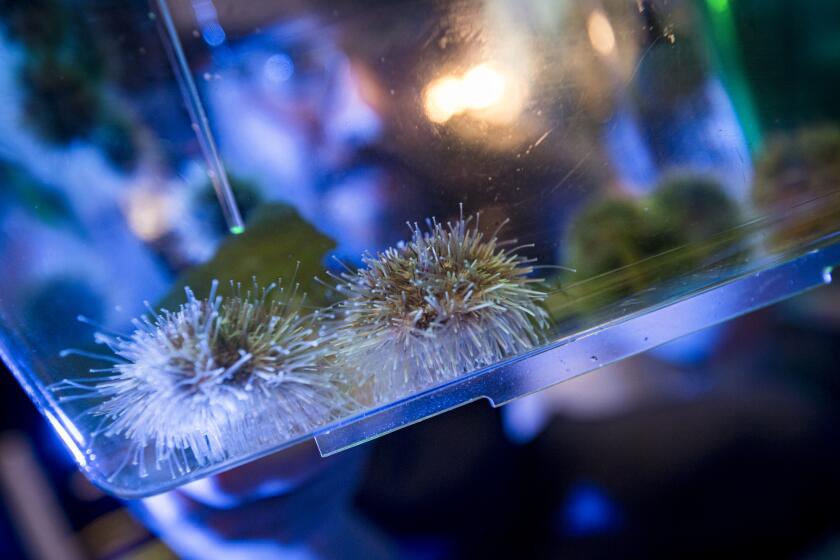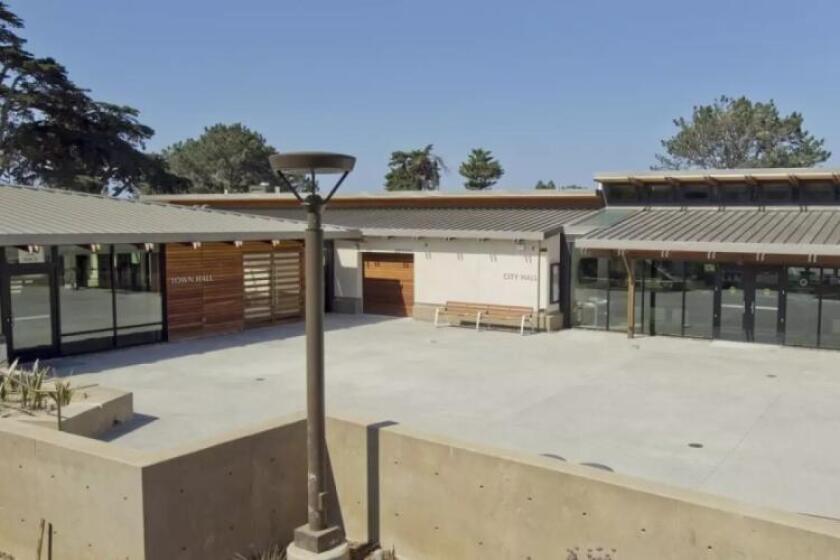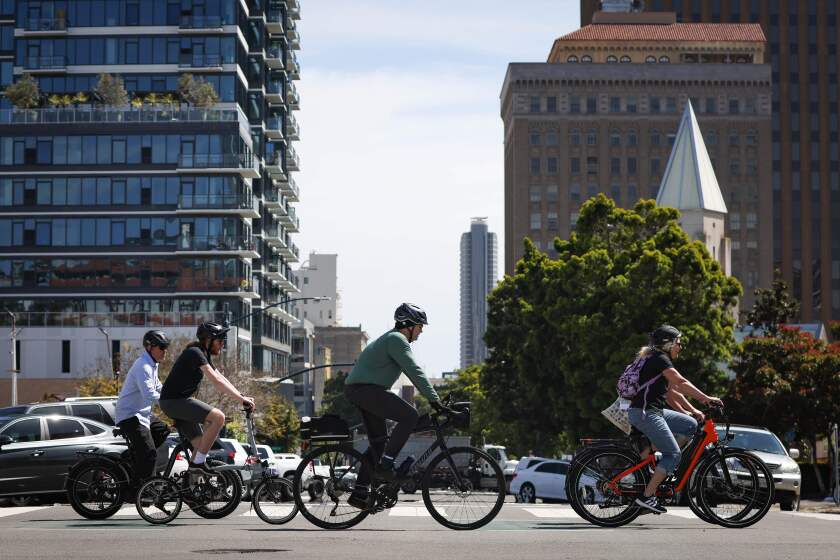San Dieguito board passes resolutions denouncing antisemitism, discrimination
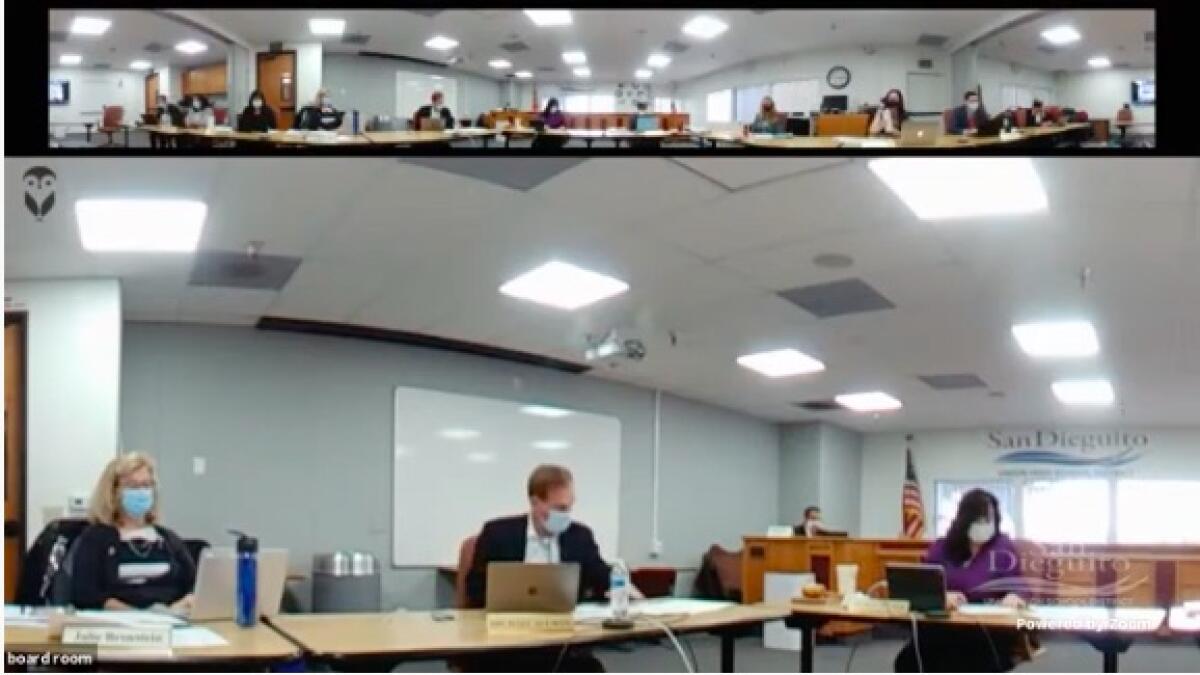
On Nov. 18, the San Dieguito Union High School District passed a resolution addressing antisemitism and affirming the value of Jewish students, faculty, staff, and families. The resolution denounced the rise in antisemitic rhetoric and hate-motivated crimes and incidents that denigrate members of the Jewish community served by San Dieguito.
A second resolution affirmed the protection of students against discrimination, harassment, intimidation and bullying, aiming to make changes in district procedures that could help identify and address acts of discrimination.
Both resolutions were brought forward by Trustee Michael Allman.
“Many parents and students in our community feel that we are failing to adequately provide a safe and nurturing environment free from discrimination, harassment, intimidation and bullying,” Allman said. “We owe it to our students and our families to minimize discrimination in all its forms.”
President Mo Muir said she wanted to send a clear message that bullying and harassment of any kind is unacceptable and the board as a whole supported that schools should be an environment where all students feel welcomed and loved.
The resolution on antisemitism was in response to a letter to the board from 250 students from San Dieguito’s Jewish community, pleading for a resolution against the rise in antisemitism: “We deserve to feel safe on campus,” the student wrote.
“We’ve had enough of the swastikas we’ve seen tagged everywhere, enough of the hateful memes and enough of the ugly side comments and texts. We should not be afraid to wear a Jewish star necklace or post about being Jewish on social for fear of being bullied,” read the letter. “After being blindsided by standardized testing during Rosh Hashanah in September, we were reminded how little representation we have.”
During public comment, parents said Jewish families are suffering due to a rise in hatred directed at their faith, identity or historical roots. Two parents said they removed children from district or Encinitas schools due to antisemitic acts. There have been reports of students being beaten up for being Jewish at Carmel Valley Middle School and San Dieguito Academy has been vandalized with anti-semitic imagery—just last week a racial slur was graffitied on the campus. (At the meeting, Superintendent Cheryl James Ward said they were able to review camera footage from campus and determined that the offenders were not district students.)
Miri Ketayi, an Israeli-American parent, said her Jewish son felt uncomfortable at school during the last conflict between Israel and Hamas in May. The students’ letter referenced how teachers allowed anti-Israel and anti-Zionism rhetoric in the classroom and said they were silenced when they spoke up about it.
“We are in pain because of the antisemitism in the community,” said parent Rakefet Benderly, who said her daughter does not wear her Jewish jewelry at school because she is afraid of verbal attacks and said that Holocaust jokes and hatred of Israel is showing up in her classroom. “I can’t believe this is happening again in our Jewish history and it needs to stop.”
In addition to testing during Rosh Hashanah, a board meeting was also scheduled this year on Yom Kippur but later canceled—Muir said she wants to ensure those scheduling errors never happen again.
Get the Del Mar Times in your inbox
Top stories from Carmel Valley, Del Mar and Solana Beach every Friday for free.
You may occasionally receive promotional content from the Del Mar Times.
The resolution condemning antisemitism passed 4-0 with Trustee Katrina Young abstaining. With her abstention, Young said it was a very nuanced and complex matter. She said she loved the premise of the resolution but did not feel that she had the adequate information and wanted to do it right, to approve a resolution that was “worthy of these kids and their request.”
Newly-sworn in Trustee Julie Bronstein and Vice President Melisse Mossy understood Young’s concerns and suggested the inclusion of the words “anti-Zionism and anti-Israel bias.” Ward suggested the addition of language used in San Diego Unified’s recently passed resolution, which states that “anti-Zionism and anti-Israel bias can descend into antisemitism when they promote demonization and discriminatory double standards.”
Allman agreed to the edit but Young still abstained, as she said she needed more information and wanted more student and community voices to be considered for the language.
Muir and Allman had strong feelings that the resolution be passed that day.
“The students have said ‘we want you to hear us’ and I heard them,” Muir said. “This is important to them.”
During the Nov. 18 special meeting, the board also passed the resolution affirming the protection of students against discrimination, harassment, intimidation and bullying. It denounces discrimination, sexism, racism, xenophobia, antisemitism, Islamophobia, homophobia, transphobia and ableism that not only generate heated rhetoric, but can also result in vandalism, physical assaults and emotional trauma.
The resolution has some teeth as it gives the superintendent 90 days to bring back to the board for consideration a new centralized position that will be tasked with carrying out the resolution’s intent. The new district-level position will be responsible for investigating and addressing allegations of discrimination and harassment.
Bronstein questioned the original language of the resolution which listed the title of the new position as an “Anti-Discrimination Diversity Equity and Inclusion Officer”. She had hoped the position with that title would be less about investigations and more about bringing people together. She also requested that school principals be consulted on any new position like this.
Ward suggested the alternative title of an ombudsman, an independent official that students could go to without fear of retaliation. Ward shared that she went to an ombudsman in college when a professor told her that Black students didn’t deserve better than a C.
Ward said this position could be an existing staff member and not necessarily a new hire and part of the ongoing organizational review of the administrative positions in the district office approved last month.
Young said she appreciated the focused intention on creating a safe and secure environment for students but wanted the resolution to include systemic inequity. Allman refused to add the word equity as he said it was not the purpose of the resolution. “Let’s call for the vote and vote no,” he said when Young continued to ask for equity to be added.
Allman became frustrated that when Muir calls for a vote, he said Young reopens further debate. Bronstein said she didn’t see it as debate but Young explaining her point of view with her vote.
“I would like this to be a little more civil,” Young said. “I feel like I got pushed into a corner and I don’t like how I had to vote last time…My heart really breaks with the last vote and it’s breaking with this one.”
Young ended up voting in favor of the “imperfect” resolution because she wanted to show that she does care about this topic but said often when she offers an idea or suggestion, the discussion is cut off or others on the board take a hard line and do not offer to compromise.
Muir said no one is pressuring her and told Young to just vote the way she wants to. Muir said she heard what Young had to say but she was making the same argument without any progress: “It’s nothing against you, I have to push the meeting forward,” Muir said as the special meeting had already gone an hour over its allotted time.
After the two-hour special meeting ended, the board met for another six hours for its regular meeting.
Student board representatives took notice of the exchange, mentioning it during the student reports at the regular meeting that followed.
“We are very disappointed in the way the board members conducted themselves,” said Olivia Pacheco, the La Costa Canyon representative. “The way the board acted would not be allowed on our campuses.”
During her board report, Muir responded to Olivia’s comments on the board’s discussion.
“Everybody on this board is passionate about what goes on with our children…we want all kids to succeed,” Muir said. “Sometimes that comes across as not what we’d like but everyone has what’s best for children at heart.”
After a summer of activism following the death of George Floyd, groups of SDUHSD students have been protesting since August 2020 demanding that the school board address racial inequities and diversity. Students made it onto a board agenda in January 2021 to talk about their efforts with Diversify our Narrative— encouraging the district to incorporate more texts by BIPOC authors in English and literature courses and to have more classroom discussions on identity bias and race.
A board policy on equity was approved in September 2020, including strategies to promote equity in district programs such as adopting curriculum and instructional materials that accurately reflect the diversity among student groups, building a positive school climate, promoting the employment and retention of a diverse staff and ongoing professional learning with the San Diego County Office of Education.
Superintendent Ward thanked students for speaking out. Since coming on board last month she has connected with multiple student groups across the district.
“We hear all of you. I want you to know that we do hear you,” Ward said, adding they are committed to the DEI work to ensure all “kiddos” feel loved and are able to put their best foot forward at school. “It’s an all-hands on deck effort that we need to have. This is a work in progress, we will continue to grow. Our goal is to continue to get better and better at serving our community.”
Get the Del Mar Times in your inbox
Top stories from Carmel Valley, Del Mar and Solana Beach every Friday for free.
You may occasionally receive promotional content from the Del Mar Times.

